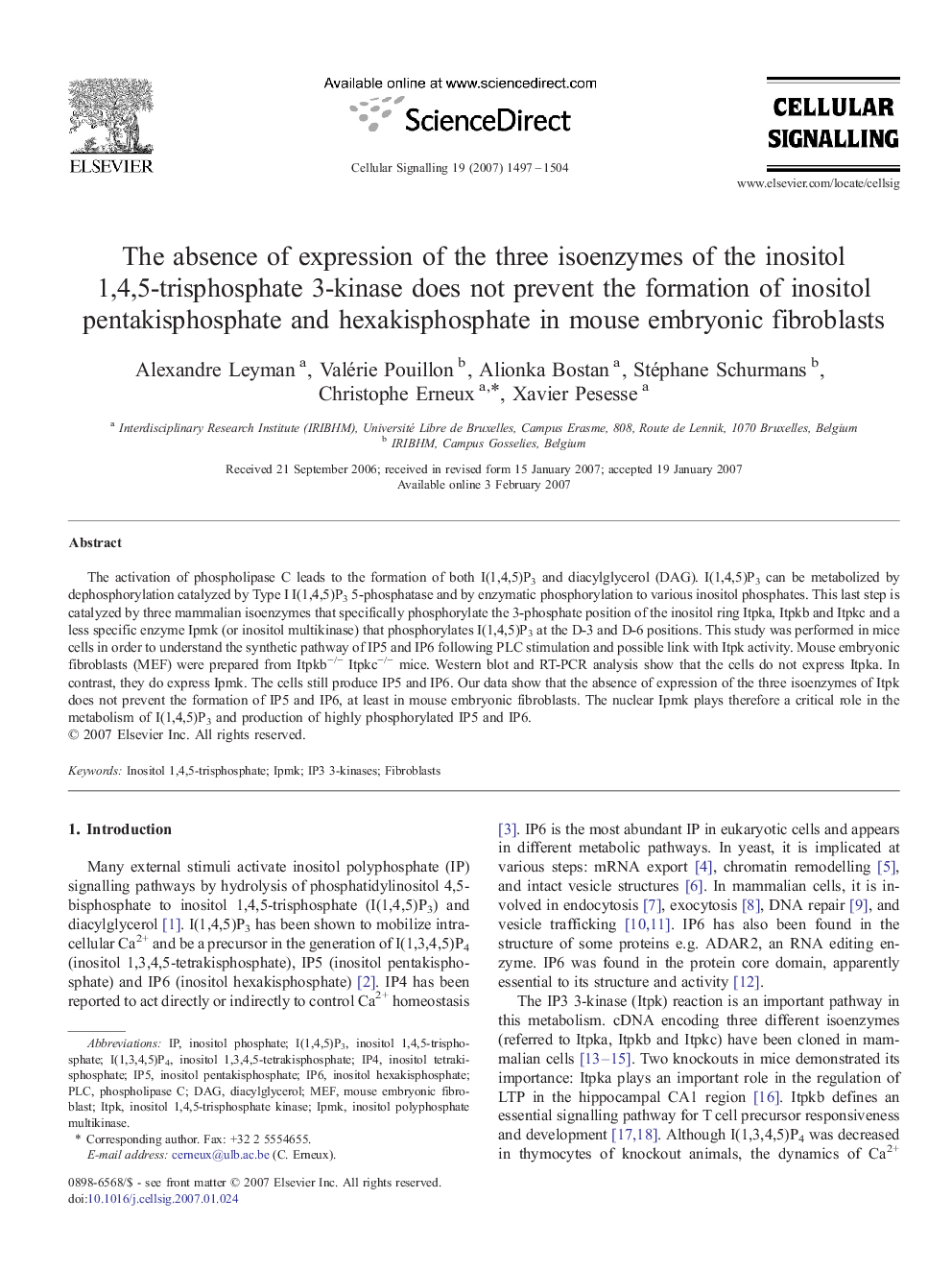| کد مقاله | کد نشریه | سال انتشار | مقاله انگلیسی | نسخه تمام متن |
|---|---|---|---|---|
| 1964906 | 1058632 | 2007 | 8 صفحه PDF | دانلود رایگان |

The activation of phospholipase C leads to the formation of both I(1,4,5)P3 and diacylglycerol (DAG). I(1,4,5)P3 can be metabolized by dephosphorylation catalyzed by Type I I(1,4,5)P3 5-phosphatase and by enzymatic phosphorylation to various inositol phosphates. This last step is catalyzed by three mammalian isoenzymes that specifically phosphorylate the 3-phosphate position of the inositol ring Itpka, Itpkb and Itpkc and a less specific enzyme Ipmk (or inositol multikinase) that phosphorylates I(1,4,5)P3 at the D-3 and D-6 positions. This study was performed in mice cells in order to understand the synthetic pathway of IP5 and IP6 following PLC stimulation and possible link with Itpk activity. Mouse embryonic fibroblasts (MEF) were prepared from Itpkb−/− Itpkc−/− mice. Western blot and RT-PCR analysis show that the cells do not express Itpka. In contrast, they do express Ipmk. The cells still produce IP5 and IP6. Our data show that the absence of expression of the three isoenzymes of Itpk does not prevent the formation of IP5 and IP6, at least in mouse embryonic fibroblasts. The nuclear Ipmk plays therefore a critical role in the metabolism of I(1,4,5)P3 and production of highly phosphorylated IP5 and IP6.
Journal: Cellular Signalling - Volume 19, Issue 7, July 2007, Pages 1497–1504